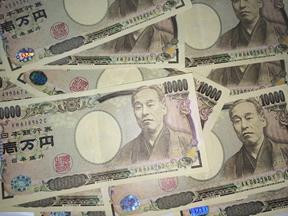Japan's economy contracted more sharply than expected in the first quarter of 2025, raising alarms over the country's fragile recovery and intensifying pressure on policymakers ahead of a looming wave of U.S. tariffs targeting key export sectors. Preliminary government data released Friday showed real GDP shrank by 0.7% on an annualized basis in the January-March period, significantly worse than the market consensus of a 0.2% decline.
On a quarter-over-quarter basis, GDP fell 0.2%, marking Japan's first quarterly contraction in a year. The weakness was primarily driven by stagnant domestic consumption and a decline in exports-factors that predate President Donald Trump's April 2 announcement of sweeping tariffs on Japanese goods, including a 24% levy set to take effect in July unless a trade deal is reached.
Private consumption, which accounts for more than half of Japan's economic output, was flat compared to expectations for a 0.1% gain. External demand dragged overall GDP by 0.8 percentage point, as exports fell 0.6% and imports rose 2.9%.
"Japan's economy lacks a driver of growth given weakness in exports and consumption. It's very vulnerable to shocks such as one from Trump tariffs," said Yoshiki Shinke, senior executive economist at Dai-ichi Life Research Institute. "The data may lead to growing calls for bigger fiscal spending," he added.
Capital expenditure provided a modest upside surprise, rising 1.4% and contributing 0.7 percentage point to GDP. Still, analysts warned that escalating trade tensions and weak household sentiment could further depress growth.
"We must be mindful of downside risks to the economy from U.S. tariff policy," said Economic Revitalization Minister Ryosei Akazawa, while citing wage hikes as a possible buffer. "The hit to consumption and household sentiment from continued price rises is also a risk to growth," he said.
The GDP deflator rose 3.3% from a year earlier, accelerating for a second consecutive quarter, signaling that firms are passing more costs onto consumers-potentially dampening demand. Meanwhile, major Japanese automakers, heavily reliant on U.S. markets, are already signaling strain. Toyota warned of a 20% drop in profit, while Mazda declined to issue forward guidance due to policy uncertainty.
Ryutaro Kono, chief economist at BNP Paribas, told AFP, "Uncertainty is greatly heightened by the Trump tariffs, and it is likely that the economic slowdown trend will become clearer from the second quarter onward."
The Bank of Japan, which ended its negative interest rate regime in January, had raised rates to 0.5%, banking on wage growth and moderate recovery. But in its most recent meeting, the central bank sharply cut its growth outlook due to global headwinds, including U.S. protectionism.






